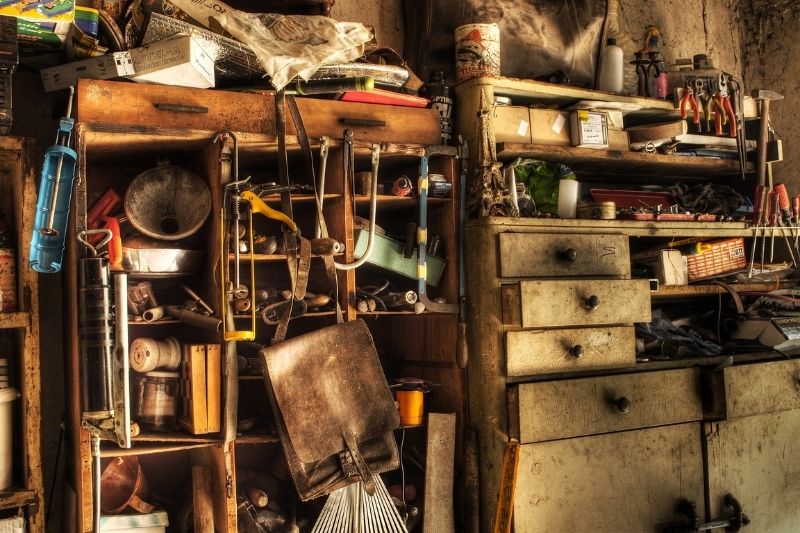No products in the cart.
Things You Probably Didn’t Know About Hoarders

Accumulating junk is a rather normal thing, isn’t it? Extra things start piling up and you don’t have any space left for the important ones. Now it will be necessary for you to take out some time from your daily routine to start with a cleanup. Even organized people might slip from time to time when it comes to junk accumulation. If this sounds like you or someone you know then you need to know a lot more about cleanup hoarders.
Hoarding disorder is a mental illness affecting several people around the world. This illness will act as a hindrance in your life as well as hamper your relationship with others. As such, posing as a problem that you need to get rid of as soon as possible. You should always avail professional services to get started with hoarding cleanup. But, before you do that you need to understand the mind of a hoarder.
Mostly, people fail to acknowledge that this is an illness that takes a toll on someone emotionally and even physically. The family and friends of a hoarder might be very concerned about them but there are things that they should always know including symptoms and possible triggers.
So, Here Are The Things You Probably Didn’t Know About Hoarders:
Hoarding is a common problem
As mentioned above, it’s a very common problem but not very easily identified within the general population. It’s just not about the clutter of clothes in an individual’s room. It is generally the inability of a person to reach out to do daily life jobs easily Then again they won’t want to get rid of the items too because of various reasons like their emotional attachment.
Their problem is deep-seated
Hoarders don’t hoard things without a clear reason. They tend to highly value items that we would normally throw out on normal days. They tend to keep them due to the memories adjoined to them, for their artistic, or either some future value they might get from a certain item. But, they don’t do this in moderation which results in their living space being full of things they don’t really need. This behavior can quickly run out of control and at a certain stage, they won’t notice anything at all. This means they would normally stay in the middle of all the junk at home, without realizing the situation they’re in.
This problem hit them most probably during puberty
This illness often hits at an early age of 13-14 during puberty where children start to collect broken toys, old cards, etc. This then progresses to become more serious during adulthood where it needs to be supervised regularly to keep a check on it. It’s really hard to notice at first and later it becomes too late.
For them, trauma acts as a trigger
The habit of hoarding often begins as a response to a traumatic life event. This type of event can be anything from the death of someone close, family issues, or anything sensitive that may trigger overwhelming emotions in the victim. People who have undergone these circumstances use hoarding as a way to overcome the resulting depression.
Their Brain function differently
Research led by Dr. David Tolin from Hartford Hospital shows that there is a functional difference between the brain of a hoarder and the brain of a non-hoarder. Hoarders find it relatively difficult to make decisions, and they are more anxious when it’s about discarding anything. The central lobe of the brain plays a critical role in thinking and rationally considering options. Therefore, in a hoarder’s frontal lobe the question of throwing or keeping things can always be confusing.
Depression is a close relative of hoarders
Depression doesn’t start in hoarders from the beginning. Most of them wind up in depression between walking on the path of this habit. This illness often promotes the feeling of safety, security, and happiness through the person’s affinity towards some things. But, sometimes a hoarder can get overburdened with grief, guilt, or shame because of the deteriorating shape of their living space which can make them move towards depression.
They become isolated
Often hoarders become emotionally and socially isolated because it is hard for them to invite people into their space. Friends and family won’t like to stick around for long because of the mess. It is a fact that there won’t be any actual space for guests in their living space.
A hoarding cleanup alone won’t solve their problem
Hoarders don’t keep things because of their monetary value. Some of their possessions can be very expensive. They might think that these items can be of use to them in the future. Clearing out these items might cause them to feel anxiety, stress, and many other negative emotions. So, a dustbin and broom won’t solve these problems. It’s necessary to help them clear out the negative emotions from their headfirst to move forward with the hoarding cleanup process.
Therapy can help them
Cleaning or hiring a temporary cleaner won’t help solve the problem completely. If we are talking on a long-term basis then a hoarder might feel better with therapy and in most cases, it is bound to be successful. It provides them the right direction and eventually makes them understand why they need to let go of things they’ve been clinging on to for so long.
Bottom Line on Hoarding Cleanup
Hoarders often find themselves alone and hence it’s important for their friends and family to understand them. Doing so will not only help the hoarder but the people connected to them too. With some extra understanding and patience, one can definitely build a healthy relationship with a hoarder. With the points stated above, you will surely be able to perceive the mind of somebody you know who’s a hoarder in a much better way.















Leave a Reply